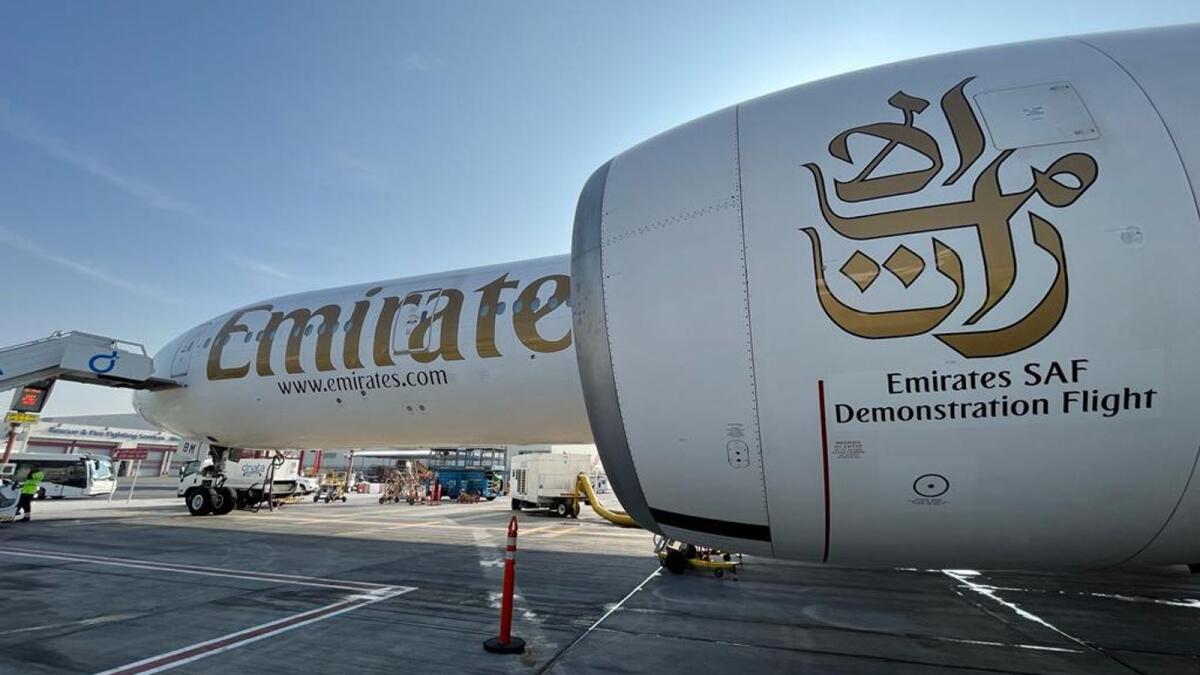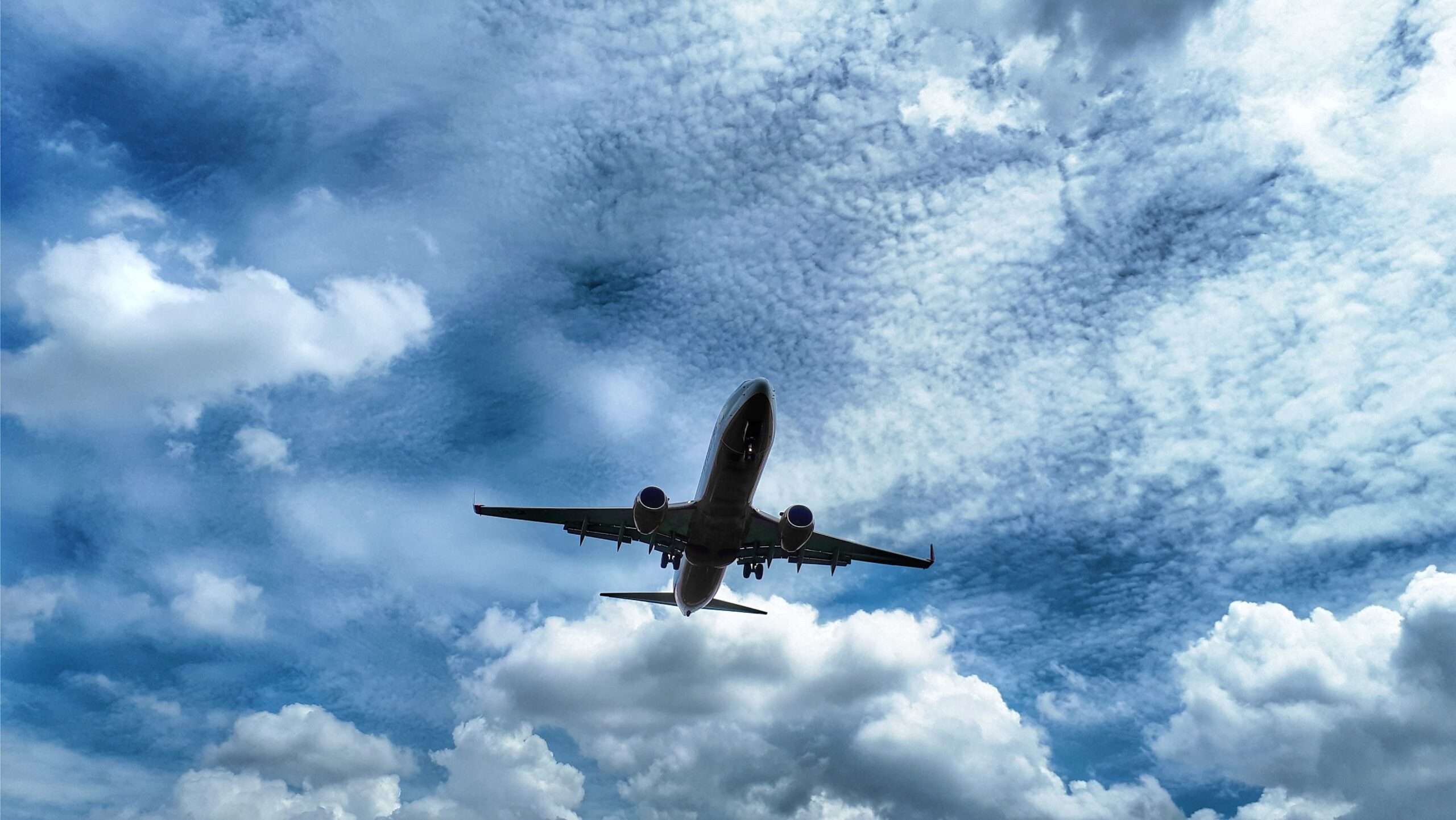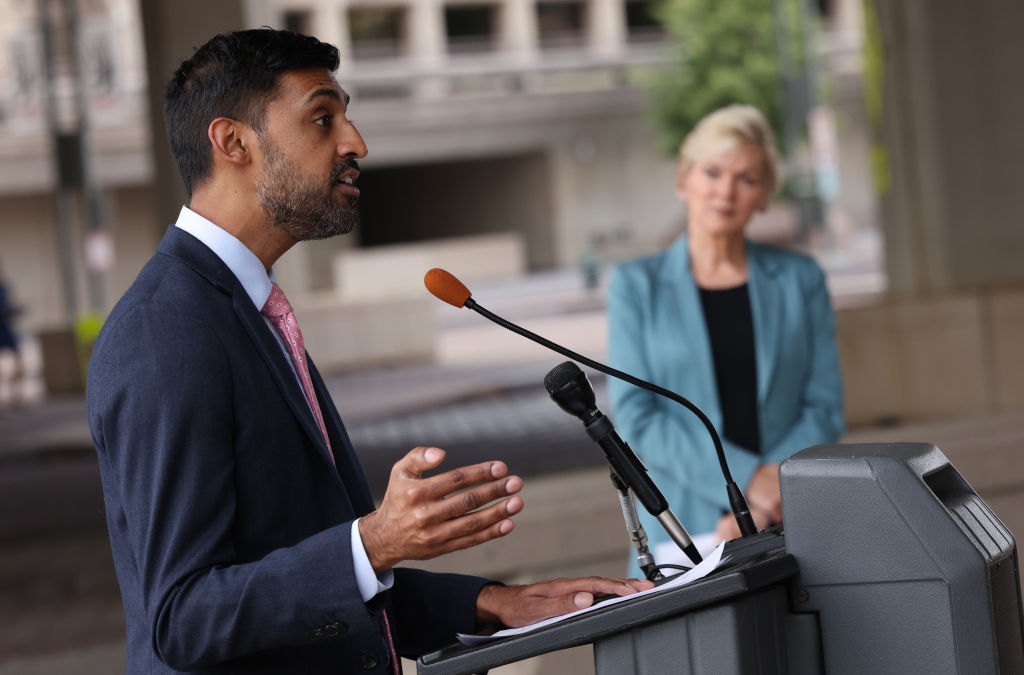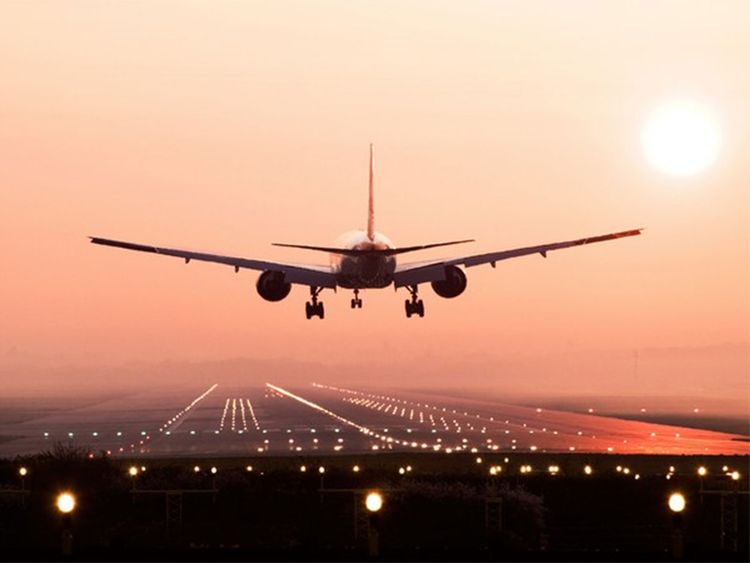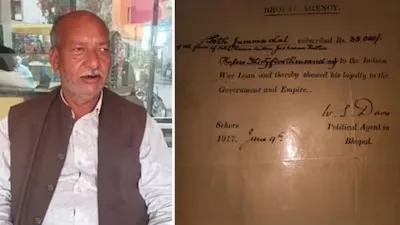The flight deck crew were accompanied by Adel Al Redha, Emirates’ Chief Operating Officer, and Captain Hassan Hammadi, Divisional Senior Vice President, Emirates Flight Operations
Emirates has operated its first milestone demonstration flight on a Boeing 777-300ER, powering one of its engines with 100% Sustainable Aviation Fuel (SAF), an Emirates press release said.
The flight took off from Dubai International Airport (DXB), and was commanded by Captain Fali Vajifdar and Captain Khalid Nasser Akram, flying for more than one hour over the Dubai coastline. The flight deck crew were accompanied by Adel Al Redha, Emirates’ Chief Operating Officer, and Captain Hassan Hammadi, Divisional Senior Vice President, Emirates Flight Operations.
The demonstration flight powered by SAF holds particular significance as the UAE declares 2023 the ‘Year of Sustainability’. The year will showcase the UAE’s commitment to seek innovative solutions to challenges such as energy, climate change and other issues related to sustainability. The flight supports collective industry efforts to enable a future of 100% SAF flying and help advance the UAE’s sustainability objectives.
Emirates’ demonstration flight, the first in the Middle East and North Africa to be powered by 100% SAF, supports broader efforts to reduce lifecycle CO2 emissions as the industry looks to scale up its use of SAF. The flights will also help to refine the playbook for future SAF demonstrations, and support future certification where 100% drop-in SAF fuel is approved for aircraft. Currently, SAF is approved for use in all aircraft, but only in blends of up to 50% with conventional jet fuel.
Emirates’ first flight powered by SAF blended with jet fuel was in 2017, operating from Chicago O’Hare airport on a Boeing 777. It received its first SAF-powered A380 delivery in 2020, and also uplifted 32 tonnes of SAF for its flights from Stockholm that same year
Emirates worked alongside partners GE Aerospace, Boeing, Honeywell, Neste and Virent to procure and develop a blend of SAF that closely replicates the properties of conventional jet fuel. At each blend ratio, a host of chemical and physical fuel property measurements were carried out. After multiple lab tests and rigorous trials, they arrived at a blending ratio that mirrored the qualities of jet fuel. Eighteen tonnes of SAF were blended, comprised of HEFA-SPK provided by Neste (hydro processed esters and fatty acids and synthetic paraffinic kerosene) and HDO-SAK from Virent (hydro deoxygenated synthetic aromatic kerosene). The 100% SAF supplied one GE90 engine, with conventional jet fuel supplying the other engine.
The test flight further demonstrates the compatibility of the specially blended SAF as a safe and reliable fuel source. The promising outcome of this initiative also adds to the body of industry data and research around SAF blends in higher proportions, paving the way for standardization and future approval of 100% drop-in SAF as a replacement for jet fuel, well above the current 50% blend limit.
Adel Al Redha, Chief Operating Officer, Emirates Airline said: “This flight is a milestone moment for Emirates and a positive step for our industry as we work collectively to address one of our biggest challenges – reducing our carbon footprint. It has been a long journey to finally see this demonstration 100% SAF flight take off. Emirates is the first passenger airline in the world to operate a Boeing 777 powering a GE engine with 100% SAF. Such initiatives are critical contributors to industry knowledge on SAF, and provide data to demonstrate the use of higher blends of SAF for future regulatory approvals. We hope that landmark demonstrations flights like this one, will help open the door to scale up the SAF supply chain and make it more available and accessible across geographies, and most importantly, affordable for broader industry adoption in the future.”
Jonathan Wood, Vice President EMEA, Renewable Aviation at Neste said: “Sustainable aviation fuel plays a crucial role in reducing the emissions of air travel but to fully leverage its decarbonization potential we need to enable 100% SAF use. Test flights like this Emirates flight with Neste MY Sustainable Aviation Fuel are an important step towards 100% SAF certification. Neste is working closely together with partners to accelerate the availability and use of SAF as we increase our SAF production capacity to 1.5 million tons per annum by the end of this year. We look forward to growing the supply of SAF also to Dubai.”
Saif Humaid Al Falasi, Group CEO at ENOC praised the achievement as it coincides with 2023 as the ‘Year of Sustainability’, which was announced by the UAE’s President Sheikh Mohamed bin Zayed Al Nahyan. It also represents a major step towards reducing carbon dioxide emissions and achieving climate neutrality.
Emirates is committed to supporting initiatives that help minimise its CO2 emissions, and the airline has already made great strides in fuel efficiency and conservation as well as operational advancements. The airline also supports IATA’s collective industry commitment to reach net zero emissions by 2050, and is exploring opportunities to augment operational fuel efficiency, SAF, low carbon aviation fuels (LCAF) and renewable energy.
The airline already runs a comprehensive fuel efficiency programme that actively investigates and implements ways to reduce unnecessary fuel burn and emissions, wherever it is operationally feasible. Some of the programme’s most significant initiatives include the operation of “flex tracks”, or flexible routings – partnering with air navigation service providers to create the most efficient flight plan for each flight. These efforts have been ongoing since 2003, and Emirates has been working with IATA to extend this routing system across the world as a standard operating procedure where possible.
Emirates’ first flight powered by SAF blended with jet fuel was in 2017, operating from Chicago O’Hare airport on a Boeing 777. It received its first SAF-powered A380 delivery in 2020, and also uplifted 32 tonnes of SAF for its flights from Stockholm that same year.
******************************************************************
Readers
These are extraordinary times. All of us have to rely on high-impact, trustworthy journalism. And this is especially true of the Indian Diaspora. Members of the Indian community overseas cannot be fed with inaccurate news.
Pravasi Samwad is a venture that has no shareholders. It is the result of an impassioned initiative of a handful of Indian journalists spread around the world. We have taken the small step forward with the pledge to provide news with accuracy, free from political and commercial influence. Our aim is to keep you, our readers, informed about developments at ‘home’ and across the world that affect you.
Please help us to keep our journalism independent and free.
In these difficult times, to run a news website requires finances. While every contribution, big or small, will makes a difference, we request our readers to put us in touch with advertisers worldwide. It will be a great help.
For more information: pravasisamwad00@gmail.com

